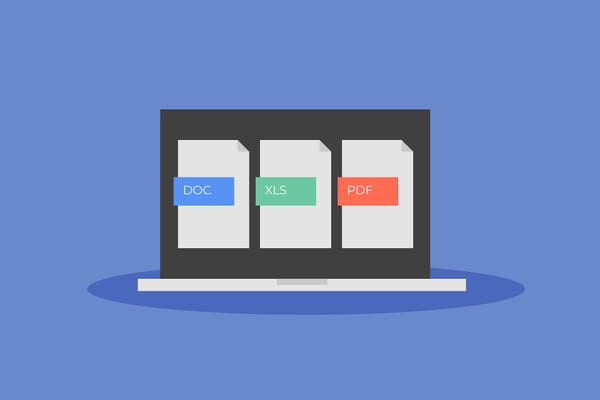Job Application or Phishing Email? How Recruiters Can Spot the Difference

Being a legitimate recruiter is already challenging nowadays. You work hard to find the right talent, manage hiring processes, and protect sensitive applicants' data. But in a world full of scammers and job fraud, the risks don't just affect job seekers—your business is a target, too.
Cybercriminals see HR professionals and recruiting agencies as a goldmine of valuable personal and financial data. Since you manage resumes, background checks, payroll information, or identification documents, you may be targeted. One common method they use is phishing attacks.
A Real-Life Scenario: When Phishing Feels Too Real
Imagine you receive an email titled "Job Application." It looks legitimate—professional wording, no obvious errors, and even a well-written cover letter. You download the attached "CV." But the moment you open it, you unknowingly trigger malware that compromises your system. Suddenly, your recruitment agency is under attack, your data is exposed, and scammers have gained unauthorized access to sensitive company information.
What else could you do? Reviewing emails and attachments from unknown sources is part of the job. Cybercriminals know this and use it to their advantage, crafting emails that look genuine but are designed to steal sensitive data.
Why Are You Targeted?
Because you store and have access to vast amounts of personal and financial information—not just about employees, but also job applicants, clients, and partner companies. Attackers know that HR records often contain key identity verification details like full names, addresses, and birthdates. This makes recruitment agencies incredibly valuable to cybercriminals looking to commit fraud, identity theft, or even corporate espionage.
If you run a small HR or recruiting business, you could be targeted by scammers trying to:
- Steal sensitive data – including personal and financial information about job applicants, employees, and clients.
- Exploit your credibility – by impersonating your business to send fake job offers or payroll fraud attempts.
- Gain unauthorized access – to your email, HR platforms, or payroll systems to manipulate financial transactions, tamper with background checks, or sell stolen data on the dark web.
Beyond financial loss, your company's reputation is at risk. If scammers use your business name in fraudulent hiring schemes or steal client data, it could erode trust with both job seekers and corporate clients—damaging your brand and future business opportunities.
How Scammers Target HR and Recruiting Professionals
Phishing is one of the biggest cybersecurity threats facing HR professionals. Here are the most common ways they might approach you:
- Fake Candidate Scams – A scammer submits a job application with a malware-infected resume. When you open the attachment, the malware installs on your system, giving hackers access to your HR database and company network.
- Fake Clients – A scammer poses as a company looking for talent. They engage with your recruiting agency, request sensitive data, or even attempt to get access to your hiring platform—only to disappear once they've gathered valuable information.
- LinkedIn and Messaging Scams – You receive a message on LinkedIn (or another platform) from someone posing as a job seeker, industry contact, or hiring partner. The message contains a phishing link designed to steal your login credentials or infect your device.
Related: 5 LinkedIn Scams and How to Avoid Them
- Fake Invoices – You receive an invoice for HR-related services like job postings, background checks, or recruitment software. It looks legitimate, but the payment details send funds to a scammer instead of a real partner.
Related: What Are Invoice Scams and How Small Businesses Can Stay Safe
- Compromised Job Boards – Attackers create fake job postings on reputable sites, tricking recruiters into sharing login credentials or sensitive data.
- Vendor Impersonation Scams – A scammer pretends to be an existing HR software provider, asking for updated payment details or login credentials.
Related: How to Vet Suppliers and Avoid Fake Vendor Scams
- CEO or Executive Impersonation Scams – A fraudster pretends to be a high-level executive or client from a company you work with, requesting urgent access to employee records or financial details. Since freelance HR professionals often interact with different businesses, these scammers exploit the trust built between recruiters and companies, pressuring them to share confidential data before verifying the request.
Related: CEO Scams: How to Identify, Avoid, and Protect Your Business
Learn to Recognize Phishing Emails (or Check Them with the Right Tools)
Phishing emails are designed to trick you, and spotting them isn't always easy—especially when you're busy and distracted. Scammers rely on this, crafting emails that seem routine or even urgent to get you to act without thinking.
How to Spot Phishing Emails
- Check the sender—but don't rely on this alone. While it's important to look at the sender's email address, don't rely on it alone. Cybercriminals can hack into legitimate accounts, making messages appear to come from trusted contacts.
- Look for unusual content or unexpected requests. Did you expect to receive this message? Is it asking you to share sensitive information, download an attachment, or click on a link? If something feels off, take the time to investigate further.
- Inspect links before clicking. Hover over any link in the email. Does the displayed link match the actual hyperlink? If they don't match, avoid clicking on it.
- Watch for urgency and pressure tactics. Phishing emails often use words like "urgent," "request," or "immediate action required" to pressure you into making a quick decision. Be cautious if you feel rushed.
Related: Phishing Scams: How to Identify and Avoid Them
Since phishing emails are becoming harder to detect, a cybersecurity solution like Bitdefender Ultimate Small Business Security helps protect your recruitment business by offering, among other features:
- Email protection scans incoming emails for phishing links, malware, and spoofed sender addresses and stops them before they reach your inbox. This is especially important for recruiters that regularly open emails from job applicants and clients.
- Scam Copilot analyzes suspicious emails in real-time, identifying red flags like fake sender addresses, unusual requests, and deceptive language. It helps you quickly determine whether an email is legitimate or a phishing attempt.
- Digital identity monitoring scans for exposed credentials, passwords, and personal data on the dark web. If your business email or employee credentials are leaked in a breach, you'll receive an alert, allowing you to take immediate action.
Check out our plans for small businesses.
tags
Author
Cristina is a freelance writer and a mother of two living in Denmark. Her 15 years experience in communication includes developing content for tv, online, mobile apps, and a chatbot.
View all postsRight now Top posts
How to Protect Your WhatsApp from Hackers and Scammers – 8 Key Settings and Best Practices
April 03, 2025
Outpacing Cyberthreats: Bitdefender Together with Scuderia Ferrari HP in 2025
March 12, 2025
Streamjacking Scams On YouTube Leverage CS2 Pro Player Championships to Defraud Gamers
February 20, 2025
How to Identify and Protect Yourself from Gaming Laptop Scams
February 11, 2025
FOLLOW US ON SOCIAL MEDIA
You might also like
Bookmarks







